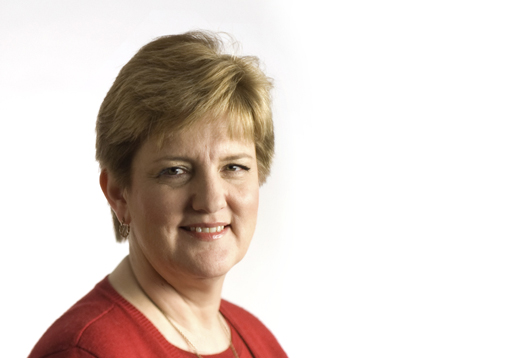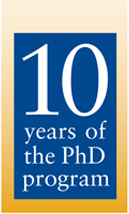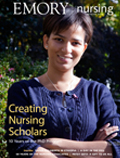The long and winding road

Catherine Vena’s professional life reflects the road nursing has taken in recent decades.
|
Global science: saving mothers and infants |
In the late 1960s, her family’s physician insisted that the only good nurses came out of hospital training programs, not fancy college-degree programs. Her parents were convinced, and Vena headed to a hospital in nearby Oak Park, Illinois, for training. After receiving her diploma degree, she practiced by day and studied by night for her BSN. With work, marriage, children, and a move to north Georgia to advance her husband’s career, Vena took 11 years to complete her degree.
To get to her empty nest plan—expanding her knowledge with a master’s degree—required another 14 years. Vena was often dissatisfied with the lack of evidence on which she based her practice in oncology and palliative care. Much of it sounded like “folklore”—anecdotal evidence that had gone untested. In the master’s program at Clemson, she realized that research had the power to provide that scientific basis, improve patient outcomes, and move the nursing profession forward in new ways. She wanted to be part of it. By her early 40s, with grown children and a supportive husband, it was now or never. In 1999, Vena became one of three students in the School of Nursing’s new doctoral program.
It was challenging: the 200-mile round-trip commute, the intense, science-based curriculum, and the transition from practicing nurse to full-time student. Even with a graduate school stipend, the family income dipped precipitously. Even more difficult was the sudden absence of caring for patients.
As any scientist knows, research raises two questions for every question it answers. Vena’s education did the same. Her courses heightened her interest in exploring a clinical phenomenon she had seen for years: the refractory sleep problems experienced by so many cancer patients. She chose as her mentor nursing professor Kathy Parker 77MN, a nationally known expert in sleep disorders.
Vena soon realized that she lacked the necessary science background to understand what was now known about sleep, much less ask new questions. When she last studied science, the concepts of neural pathways were in their infancy, far away from any undergraduate classroom. Immersed in graduate courses in neuroscience, neurobehavior, psychology, and other sciences, she worked to catch up.
For her dissertation, Vena focused on sleep/wake disturbances in patients with advanced lung and colorectal cancer. Lung patients have more dismal sleep disturbances than other cancer patients, problems clearly tied to respiratory problems caused by impaired lungs. But apart from the cancer diagnosis, the symptoms appeared similar to sleep-disordered breathing in healthy people. Could sleep-disordered breathing contribute to sleep disturbance? If so, what factors would predispose lung cancer patients to have sleep-disordered breathing? And if sleep-disordered breathing were properly treated, could patient outcomes be improved?
In 2004, Vena began a postdoctoral fellowship at the Emory Sleep Center, working with neurologists/sleep specialists David Rye and Don Bliwise and experts in pulmonology and at Emory’s Winship Cancer Institute. The questions she asked—and the nursing perspective she brought to those questions—pertained to disciplines other than her own.
As her fellowship wound down, Vena wanted to continue her clinical research and share the power of research with future nurses. Now an assistant professor in the School of Nursing, Vena recently received a $300,000 grant renewal from the National Cancer Institute to further her study of sleep disturbances in cancer patients. As a teacher, Vena empowers students with skills to form appropriate questions about their practice and to look at the research literature for answers.
For students less interested in clinical practice and more intent on generating new knowledge as clinical scholars, Vena does not recommend the “somewhat tortuous decades-long route” she took, much as she enjoyed and learned from it. Instead, she advises them to begin graduate training as early as possible.
“Having clinical expertise before you have research expertise is not absolutely necessary,” she says. “What is necessary is to have both. As nursing faculty, we want to provide a curriculum to develop clinical expertise in parallel with scholarship. That is a win-win situation.”



